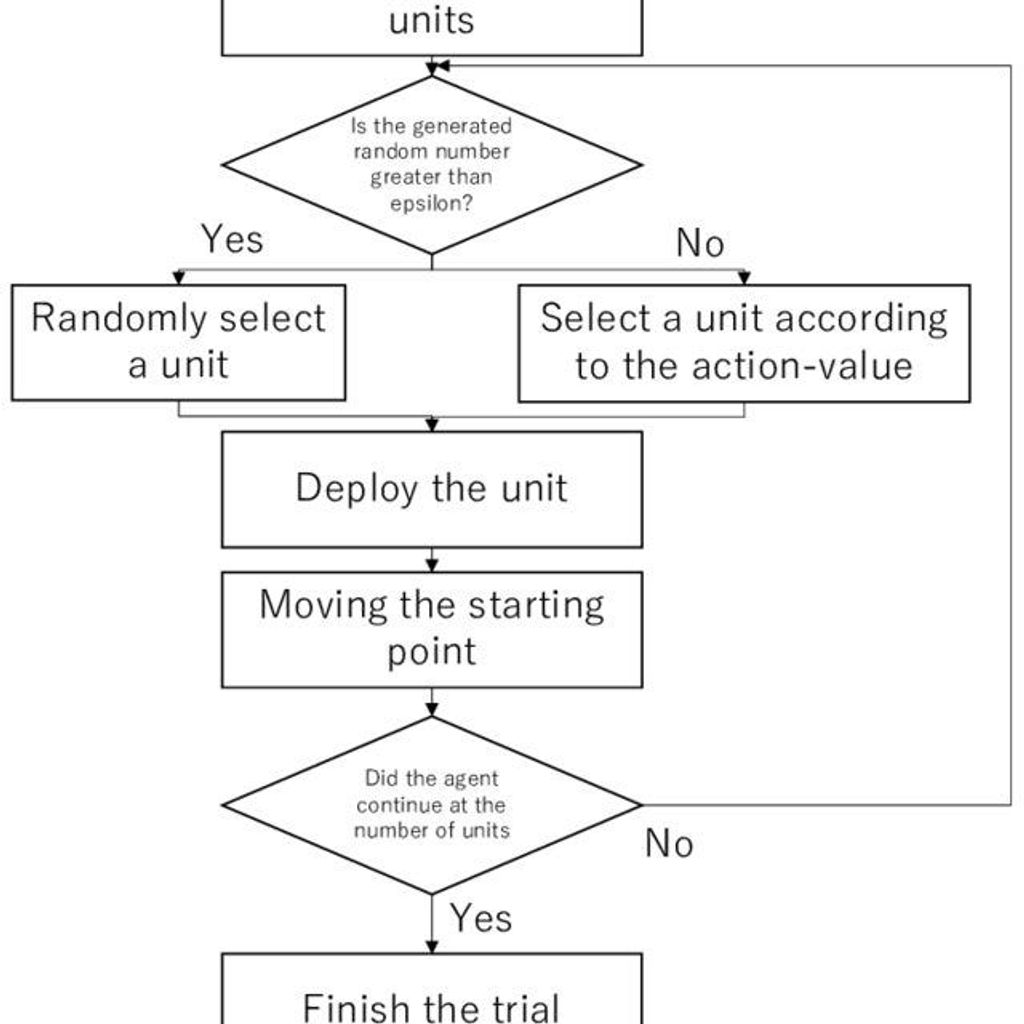Artificial intelligence is a rapidly growing field, and it is important for individuals to develop the necessary skills to succeed in this domain. In this article, we will explore some of the best skills required in an AI world. These skills include understanding machine learning, mastering natural language processing, expertise in computer vision, data collection and preprocessing, feature engineering, model selection and evaluation, fairness and bias in AI, privacy and security, transparency and accountability, automating processes, enhancing customer experience, and predictive analytics.
Key Takeaways
- Understanding machine learning is a crucial skill in the AI world.
- Mastering natural language processing is essential for developing AI models.
- Expertise in computer vision is important for tasks such as image recognition.
- Data collection and preprocessing are vital steps in developing AI models.
- Feature engineering involves selecting and creating relevant features for AI models.
The Importance of AI Skills
Understanding Machine Learning
Machine learning is one of the most spreading technologies in the field of computer science. It involves learning the system from the available datasets. With the help of machine learning, our system can learn and adapt according to new situations. There are many machine learning applications, such as healthcare, cybersecurity, quality control, finance, recommendation, etc.
Mastering Natural Language Processing
Natural Language Processing (NLP) is an important skill for handling human and computer interaction based on natural language. The main objective of NLP is to interpret human language and present the relevant result. Some of the important components of NLP include tokenization, parsing, semantic analysis, and sentiment analysis. NLP has a wide range of applications, such as chatbots, virtual assistants, sentiment analysis, and language translation.
To master NLP, it is essential to have a strong understanding of algorithms and techniques used in NLP, as well as proficiency in programming languages such as Python. Additionally, knowledge of machine learning frameworks like TensorFlow and PyTorch can greatly enhance your NLP skills.
If you’re interested in pursuing a career in NLP, you can consider roles such as NLP engineer, chatbot developer, or language processing specialist. These roles require a deep understanding of NLP concepts and the ability to apply them to real-world problems.
To stay updated with the latest advancements in NLP, it is recommended to follow research papers and attend conferences and workshops dedicated to NLP. Continuous learning and practice are key to mastering NLP and staying ahead in this rapidly evolving field.
Expertise in Computer Vision
Computer Vision Engineers are experts in image processing, computer graphics, and deep learning. They develop algorithms and systems that enable computers to understand and interpret visual data. These professionals play a crucial role in various industries, including healthcare, autonomous vehicles, and surveillance systems.
To excel in the field of Computer Vision, it is essential to have a strong understanding of statistics, machine learning techniques, and data visualization tools. Computer Vision Engineers earn an average salary of $124,000 per year.
If you’re interested in a career in Computer Vision, consider pursuing a degree in computer science or a related field. Additionally, gaining hands-on experience through internships or personal projects can greatly enhance your skills and marketability.
Here are some key responsibilities of Computer Vision Engineers:
- Developing algorithms and models for object detection, recognition, and tracking
- Implementing image and video processing techniques
- Working with deep learning frameworks like TensorFlow and PyTorch
- Collaborating with cross-functional teams to integrate computer vision solutions into products and services
Remember, Computer Vision is a rapidly evolving field, and staying updated with the latest advancements and research is crucial for success.
Developing AI Models
Data Collection and Preprocessing
Data collection and preprocessing are crucial steps in developing AI models. Before building a model, it is important to gather relevant data and prepare it for analysis. This involves tasks such as cleaning the data, handling missing values, and transforming the data into a suitable format. Additionally, data preprocessing may also involve feature scaling, normalization, and dimensionality reduction to improve the performance of the model. Proper data collection and preprocessing ensure that the model receives accurate and reliable input, leading to more accurate predictions and insights.
Feature Engineering
Feature engineering is a critical step in developing AI models. It involves transforming raw data into a format that machine learning algorithms can understand and utilize effectively. This process includes selecting and creating relevant features, encoding categorical variables, handling missing values, and scaling numerical features. By engineering informative and representative features, data scientists can improve the performance and accuracy of their models.
To perform feature engineering, data scientists can utilize various techniques such as one-hot encoding, binning, polynomial features, and feature scaling. These techniques help to capture the underlying patterns and relationships in the data, enabling the models to make more accurate predictions.
In addition to these techniques, domain knowledge plays a crucial role in feature engineering. Understanding the context and domain-specific insights can guide the selection and creation of meaningful features. It allows data scientists to incorporate relevant information that may not be explicitly present in the raw data.
Feature engineering is an iterative process that requires experimentation and fine-tuning. Data scientists need to continuously evaluate the impact of different feature engineering techniques on the model’s performance and make adjustments accordingly. By investing time and effort in feature engineering, data scientists can unlock the full potential of their AI models and achieve better results.
Model Selection and Evaluation
Model selection and evaluation are crucial steps in developing AI models. After collecting and preprocessing the data, and performing feature engineering, it is important to choose the right model for the task at hand. This involves considering factors such as the type of problem, the available data, and the desired performance metrics. Once the model is selected, it needs to be evaluated to assess its performance and make any necessary adjustments. Evaluation metrics such as accuracy, precision, recall, and F1 score can be used to measure the model’s effectiveness. It is also important to validate the model using techniques like cross-validation to ensure its generalizability. Overall, model selection and evaluation play a vital role in the success of AI projects.
Ethics in AI
Fairness and Bias
Fairness and bias are critical considerations in AI development. AI systems are trained on data that may contain biases, which can lead to unfair outcomes and perpetuate existing inequalities. It is important to address these biases and ensure that AI models are fair and unbiased. This can be achieved through various techniques such as data preprocessing, algorithmic fairness, and diverse representation in training data.
To mitigate bias, it is crucial to have a diverse and inclusive team involved in the development and deployment of AI systems. This helps in identifying and addressing potential biases from different perspectives. Additionally, ongoing monitoring and evaluation of AI systems can help detect and rectify any biases that may arise.
Table:
| Technique | Description |
|---|---|
| Data preprocessing | Cleaning and transforming data to remove biases |
| Algorithmic fairness | Ensuring fairness in the decision-making process |
| Diverse representation | Including diverse data to avoid bias |
Tip: It is important to regularly audit and evaluate AI systems for fairness and bias to ensure equitable outcomes for all users.
Privacy and Security
Privacy and security are critical considerations in the age of AI. As AI technology becomes more prevalent in various industries, there is a growing concern about the potential risks it brings. One of the main concerns is the misuse of personal data, where customers may be tracked using AI without their consent. Another concern is the occurrence of bias due to poor or misrepresented data. To address these concerns, companies should prioritize transparency in their use of AI and ensure the secure and non-discriminatory collection and processing of personal data. It is essential for marketing teams to be transparent about their AI usage and take steps to protect data privacy. Additionally, companies should invest in robust security measures to safeguard against potential threats and ensure the integrity of their AI systems.
Transparency and Accountability
Transparency and accountability are crucial aspects of AI development and deployment. In order to build trust in AI systems, it is important for organizations to be transparent about how their AI models are trained and the data they use. This includes providing clear explanations of the algorithms and techniques used, as well as disclosing any biases or limitations of the models.
One way to ensure transparency is through the use of explainable AI techniques. These techniques aim to provide insights into how AI models make decisions, allowing users to understand the reasoning behind the model’s outputs.
Accountability is also essential in AI systems. Organizations should take responsibility for the actions and decisions made by their AI models. This includes addressing any biases or unfairness that may arise from the use of AI, and taking steps to mitigate these issues.
In addition, organizations should establish clear guidelines and policies for the ethical use of AI. This includes ensuring the privacy and security of user data, as well as being transparent about how data is collected, stored, and used.
By prioritizing transparency and accountability, organizations can build trust in AI systems and ensure that they are used in a responsible and ethical manner.
AI in Business

Automating Processes
Automating processes is a key aspect of leveraging AI in business operations. By implementing AI-powered automation, companies can streamline repetitive tasks, increase efficiency, and reduce human error. Automation allows for the seamless execution of routine activities, freeing up valuable time for employees to focus on more strategic and complex tasks.
To effectively automate processes, organizations need to identify the right areas for automation and select the appropriate AI technologies. This involves data analysis to understand which tasks can be automated and how AI algorithms can be applied. Additionally, companies should consider factors such as IT infrastructure and the integration of AI solutions with existing systems.
Implementing AI-powered automation can bring numerous benefits to businesses. It can lead to cost savings, improved productivity, and enhanced customer satisfaction. By automating processes, companies can achieve faster turnaround times, reduce operational costs, and deliver more accurate and consistent results.
In summary, automating processes through AI technologies is a powerful tool for businesses to optimize their operations and drive growth. It enables organizations to streamline workflows, increase efficiency, and improve overall performance.
Enhancing Customer Experience
Enhancing customer experience is a crucial aspect of AI in business. By leveraging AI technologies, businesses can personalize and optimize the customer journey, leading to increased customer satisfaction and loyalty. AI-powered chatbots, for example, can provide instant and personalized customer support, improving response times and reducing customer frustration. Additionally, AI can analyze customer data to identify patterns and preferences, allowing businesses to tailor their products and services to individual customer needs. This level of personalization can greatly enhance the overall customer experience and drive customer loyalty.
Predictive Analytics
Predictive analytics is a powerful tool that leverages data and AI algorithms to forecast future outcomes and trends. By analyzing historical data and identifying patterns, predictive analytics can provide valuable insights for businesses to make informed decisions and optimize their strategies. With the increasing availability of big data and advancements in machine learning, predictive analytics has become an essential skill for businesses to stay competitive in the AI-driven world.
To effectively utilize predictive analytics, professionals need a strong foundation in data analysis, statistical modeling, and programming. They should be proficient in tools and techniques such as machine learning algorithms, data preprocessing, and mathematical modeling. Additionally, knowledge of cloud computing platforms and big data analytics is crucial for handling large datasets and extracting meaningful insights.
Incorporating predictive analytics into business processes can lead to various benefits, including improved customer targeting, optimized resource allocation, and enhanced decision-making. By accurately predicting customer behavior and market trends, businesses can tailor their strategies to meet specific needs and gain a competitive edge.
Key Skills for Predictive Analytics:
- Data analysis and statistical modeling
- Machine learning algorithms and models
- Data preprocessing and feature engineering
- Programming proficiency in Python or R
- Cloud computing platforms and big data analytics
Tip: When implementing predictive analytics, it’s important to ensure data quality and accuracy. Regularly validate and update your models to maintain their effectiveness.
Conclusion
In conclusion, the field of artificial intelligence is rapidly evolving and creating numerous opportunities for individuals with the right skills. To succeed in this AI-dominated world, it is crucial to have a strong foundation in programming languages, such as Python, R, and JavaScript. Additionally, skills in natural language processing, TensorFlow, databases and SQL, and mathematics and statistics are highly sought after. While AI continues to advance, it is important to remember that there are certain human skills, such as empathy, leadership, creativity, and critical thinking, that AI cannot match. By combining technical expertise with these essential human skills, individuals can thrive in the AI era and contribute to the development of innovative AI solutions.
Frequently Asked Questions
What are the most important AI skills in 2024?
The most important AI skills in 2024 include understanding machine learning, mastering natural language processing, expertise in computer vision, data collection and preprocessing, feature engineering, model selection and evaluation, fairness and bias, privacy and security, transparency and accountability, automating processes, enhancing customer experience, and predictive analytics.
Which programming languages are popular in AI?
Some of the most popular programming languages in AI are Python, R, and Javascript.
Which job skills will be most needed in an AI-dominated world?
In an AI-dominated world, job skills such as understanding machine learning, mastering natural language processing, expertise in computer vision, data collection and preprocessing, feature engineering, model selection and evaluation, fairness and bias, privacy and security, transparency and accountability, automating processes, enhancing customer experience, and predictive analytics will be most needed.
What are the top AI skills in demand?
The top AI skills in demand include understanding machine learning, mastering natural language processing, expertise in computer vision, data collection and preprocessing, feature engineering, model selection and evaluation, fairness and bias, privacy and security, transparency and accountability, automating processes, enhancing customer experience, and predictive analytics.
What are the best jobs in artificial intelligence?
Some of the best jobs in artificial intelligence are machine learning engineer, business intelligence engineer, software engineer, data analyst, data scientist, and research scientist.
Are AI skills in demand in 2024?
Yes, AI skills are one of the most in-demand jobs in 2024. The field of AI is expanding and is expected to rise even more in the coming years.




